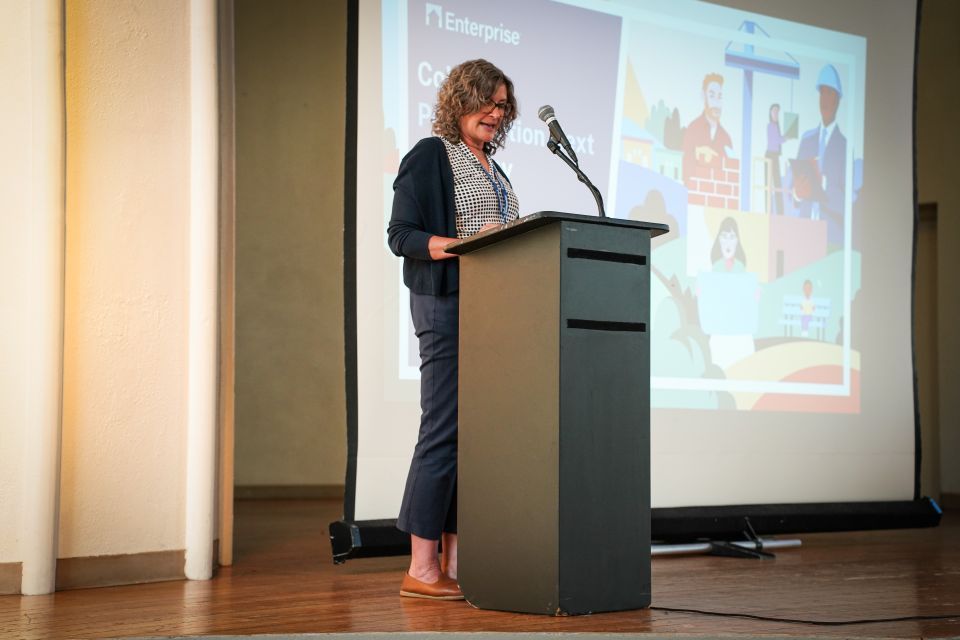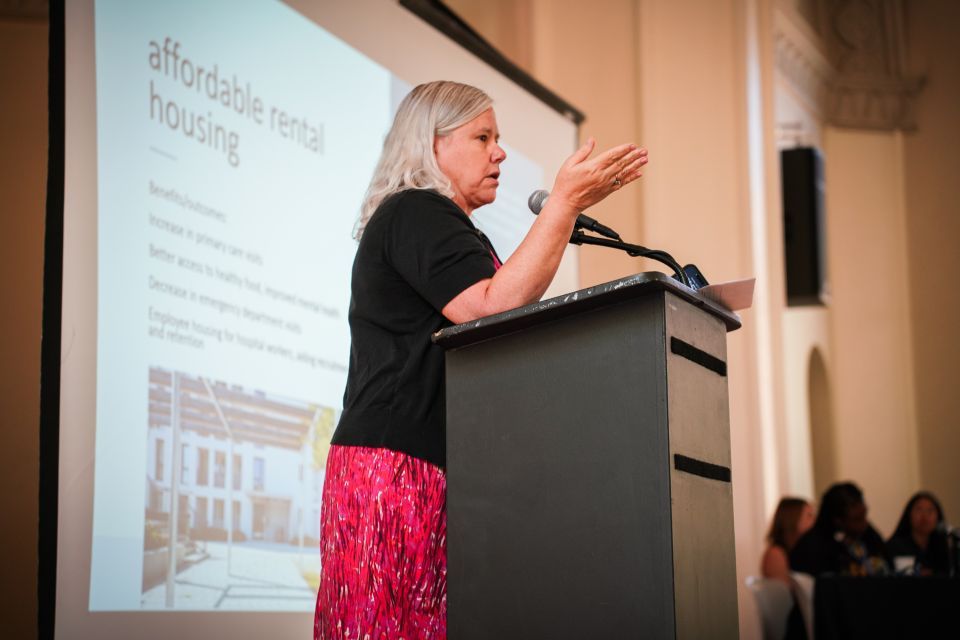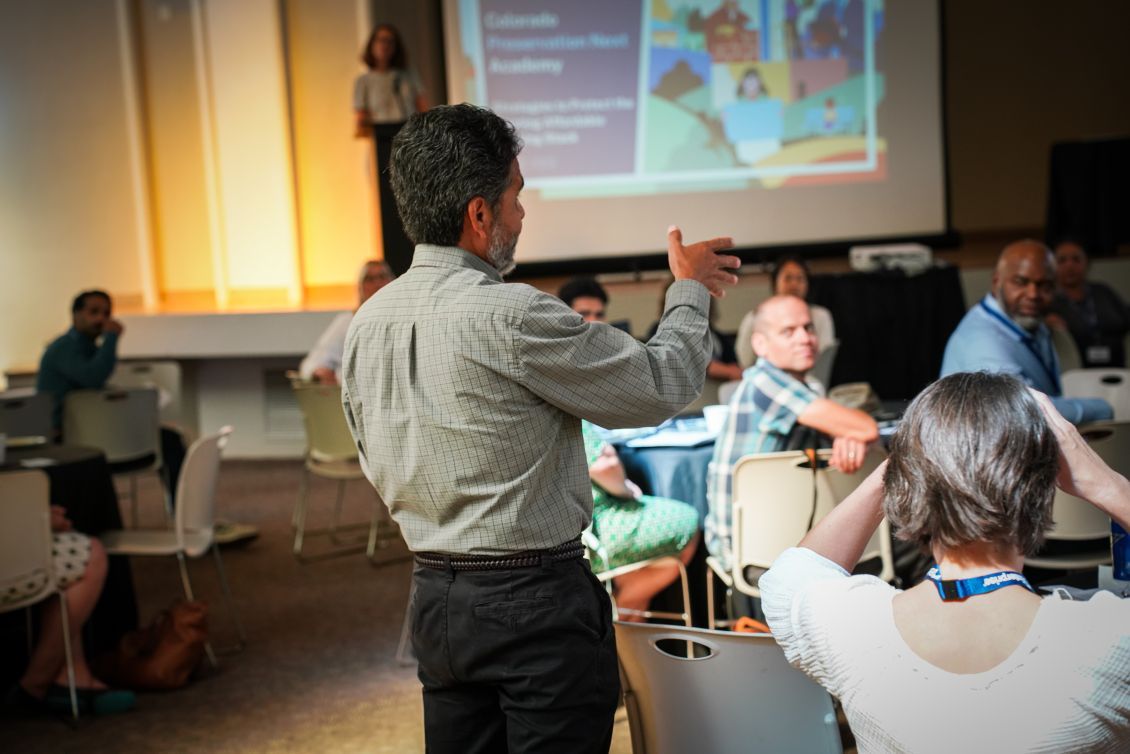The United States is grappling with a severe shortage of affordable housing and the state of Colorado is no exception. While we must continue constructing new homes, it’s clear we will not be able to build our way out of this housing crisis. We also need to preserve our existing affordable housing stock.
According to nonprofit policy group Housing Colorado, the state housing deficit now exceeds 225,000 units. The National Low Income Housing Coalition’s Colorado housing profile reports a shortage of nearly 125,000 homes accessible to extremely low-income renters earning less than 30% of area median income.
Colorado Preservation Next Academy
In July, Enterprise Community Partners hosted an in-person convening drawing affordable housing partners from across Colorado as part of Enterprise’s Preservation Next program. Over the course of these two days, 11 housing organizations representing a diverse range of Colorado communities came together for peer learning and local and industry expert panels related specifically to sustainability, resilience, and health considerations for small-to-medium multifamily preservation.

“The need for affordable housing in Colorado is unprecedented,” said Jennie Rodgers, Enterprise’s vice president and market leader for the Rocky Mountain and Tribal Nations & Rural Communities. “By offering the Preservation Next Academy, Enterprise hopes to break down many of the barriers to preserving smaller unsubsidized rental properties and increase the number of units held in the portfolios of our affordable housing providers across the state.”
The recent convening was the sixth of 11 sessions in the curriculum for Enterprise’s Preservation Next national program. Tailored for the Colorado housing landscape, Colorado’s Preservation Next Academy seeks to advance the preservation of unsubsidized affordable homes, also known as “naturally occurring affordable housing,” and promote housing stability by offering developers and housing providers necessary tools and training, technical assistance and grants, and capital resources to acquire, rehabilitate, and preserve the affordability of small-to-medium multifamily (SMMF) properties.
Integrating Sustainability, Climate Resilience, Health Interventions
The Colorado Preservation Next Cohort had the opportunity to learn from experts how best to integrate sustainability, climate resilience, and health interventions in their preservation projects.

Panelists discussed the wide-ranging benefits of preserving affordable homes. “It's often more cost-effective than new construction, [and] it's also sustainable,” said Beth Truby, preservation program manager at Colorado Housing and Finance Authority. “We can bring energy-efficiency improvements and sustainability options to affordable housing and make them more cost effective to operate for the owners and lower utility costs for tenants.”
The Preservation Next Academy includes a series of publicly available, no-cost virtual training sessions designed to assist affordable housing developers and practitioners with guidance to acquire, rehabilitate and preserve the affordability of homes located in unsubsidized SMMF properties, prevent displacement of residents, and advocate for preservation minded policies, programs, and resources.
The academy also included a tour of key affordable housing preservation sites in Denver, including Mercy Housing’s Grace Apartments, the FAX Partnership’s motel acquisitions along the East Colfax corridor – a diverse community in Denver facing extreme threats of displacement – and Montview Manor, Archway Housing’s affordable housing community in the heart of Denver supporting older adults and seniors.
Enterprise’s Preservation Next Program is made possible through funding from Kaiser Permanente, the Colorado Health Foundation, JPMorgan Chase, and Gary Philanthropy at Gary Community Ventures, with additional support from Huntington Bank and Pacific Western Bank.
